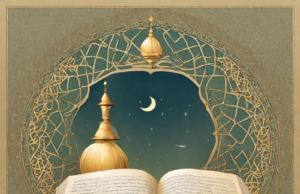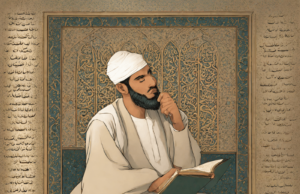Is Istighatha (invoking other than Allah) considered Shirk (Part 1)?
This post delves into the theological debate surrounding the concept of Istighatha in Islam, particularly regarding its potential classification as shirk (associating partners with Allah). It aims to provide clarity on this contentious issue, inviting readers to critically evaluate the theological implications of invoking beings other than Allah. By delineating the boundaries of permissible invocation within Islamic doctrine, the article encourages a deeper understanding of Tawhid (the oneness of Allah) and its implications for Muslim belief and practice.
Did the Aimmah (AS) know the deeper meaning (Ta’wil) of every...
This article explores the extent of the Prophet Muhammad's and subsequent Imams' knowledge regarding the deeper interpretations (Ta’wil) of Quranic verses. It examines the varying opinions among Islamic scholars regarding the scope of their understanding, referencing Hadiths and historical accounts. While some scholars argue for the comprehensive knowledge of the Prophet and Imams in all matters, including Ta’wil, others assert that their understanding was limited to what was explicitly revealed to them.
Dua to other than Allah? Tawassul or Istighathah?
Exploring the practice of Dua to entities other than Allah, this article investigates concepts like Tawassul and Istighathah within Islamic theology. It delves into the theological debates surrounding these practices, examining their validity in light of clear-cut teachings of Quran and Ahl al-Bayt. Through critical analysis, it seeks to provide clarity on the permissibility and boundaries of such supplications, fostering a deeper understanding of Islamic beliefs and practices related to invoking divine assistance.
Did the Prophet (s) and the Aimmah (as) have knowledge of...
Delving into the theological inquiry regarding the extent of knowledge possessed by Prophet Muhammad and the Imams in Shia Islam. Drawing upon Quranic verses, Hadiths, and scholarly interpretations, it explores the concept of 'ilm al-ghayb (knowledge of the unseen) and invites readers to ponder upon the nature of prophetic knowledge and its implications for understanding the role of the Prophet and the Imams within Islamic tradition. Part 1 initiates a broader discourse on the subject, paving the way for deeper exploration in subsequent installments.
Why is Dua to ‘Other than Allah’ forbidden across Ghayb (unseen)?
Download PDF
WHY IT IS CRUCIAL TO USE THIS PHRASE WHEN APPROACHING QUR’ĀNIC VERSES ABOUT DUʿĀ’ AND ISTIGHĀTHA.
The phrase ‘across the curtain of Ghayb (barrier...
But we don’t consider them Gods!
An argument made by the proponents of invocation or supplication to the Prophet ﷺ or the awliyā’ when answering those who contend that the...
Imam ʿAlī’s (as) own view of Leadership: Divine Appointment or Shūrā-based...
A Critique of the Current-day Popular Shīʿa Narrative on Divine Appointment of Amīr al-Mu’minīn Imam ʿAlī bin Abī Ṭālib (as)
The current-day, popular narrative on...
The Danger of Dreams: Marājiʿ Oppose Myth-Based Preaching on Shia Pulpits
ADVISORIES OF MARĀJIʿ & MUJTAHIDĪN AGAINST PRESENTATION AND PROMOTION OF DREAM-BASED EVIDENCE IN MAJĀLIS (LECTURES)
As if the alarming amounts of anti-Qur’ānic, inauthentic, fabricated narratives...







